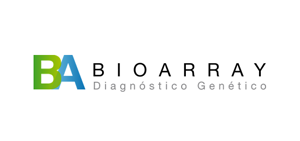The Devyser Thrombophilia assay offers a very simple procedure for testing six relevant mutations implicated in the risk of developing thrombophilia and venous thromboembolism.
Discover the test benefits:
 Identify genetic basis of thrombotic event
Identify genetic basis of thrombotic event Aid in therapy selection
Aid in therapy selection Treatment optimisation
Treatment optimisation Determine need for prophylaxis
Determine need for prophylaxis Estimate future thrombotic risk
Estimate future thrombotic risk
Devyser Thrombophilia
The Devyser Thrombophilia assay offers a very simple procedure for testing the most relevant mutations implicated in the risk of developing thrombophilia and venous thromboembolism (VTE).
It is a multiplex PCR reagent kit for simultaneous detection of six genetic risk factors associated with thrombophilia:
-
-
 Factor V Leiden, G1691A/R506Q.
Factor V Leiden, G1691A/R506Q.
One of the most important genetic risk factors for inherited thrombophilia, found in 20-50% of patients with VTE.
-
 Factor V R2, H1299R.
Factor V R2, H1299R.
Compound heterozygosity for FV R2 and FV Leiden is associated with an increased risk for venous thrombosis compared to that seen in FV Leiden heterozygotes alone.
-
 Prothrombin/Factor II, G20210A.
Prothrombin/Factor II, G20210A.
Carriers have elevated risk for thrombosis; significantly increased risk in combination with FV Leiden.
-
 5,10-Methylenetetrahydrofolate Reductase (MTHFR), C677T.
5,10-Methylenetetrahydrofolate Reductase (MTHFR), C677T.
Homozygosity predisposes to thrombosis in the presence of additional risk factors.
-
 MTHFR, A1298C.
MTHFR, A1298C.
Compound heterozygosity for MTHFR C677T and MTHFR A1298C is considered a risk factor for cardiovascular disease.
-
 Plasminogen Activator Inhibitor 1 (PAI-1/ SERPINE1) 4G/5G.
Plasminogen Activator Inhibitor 1 (PAI-1/ SERPINE1) 4G/5G.
The 4G allele is considered to be a mild risk factor for VTE and Myocardial Infarction.
-
 Aid in therapy selection
Aid in therapy selection Treatment optimisation
Treatment optimisation Determine need for prophylaxis
Determine need for prophylaxis Estimate future thrombotic risk
Estimate future thrombotic risk
Thrombophilia
Thrombophilia is an abnormality of blood coagulation, leading to increased risk for thrombosis. Thrombophilia can be identified in 50% of people who have an episode of thrombosis that was not provoked by other causes. Venous thrombosis is one of the most common thrombotic disorders affecting up to 2 in 1000 individuals every year and is associated with life-threatening conditions such as pulmonary embolism.
Genetic risk factors for Thrombophilia
The predisposition to form blood clots can arise from mutations, acquired changes in the clotting mechanism or, more commonly, an interaction between genetic and acquired factors. The risk of thrombosis increases with the number of genetic and acquired risk factors present so that individuals with multiple risk factors are at greater risk than those with just a few








